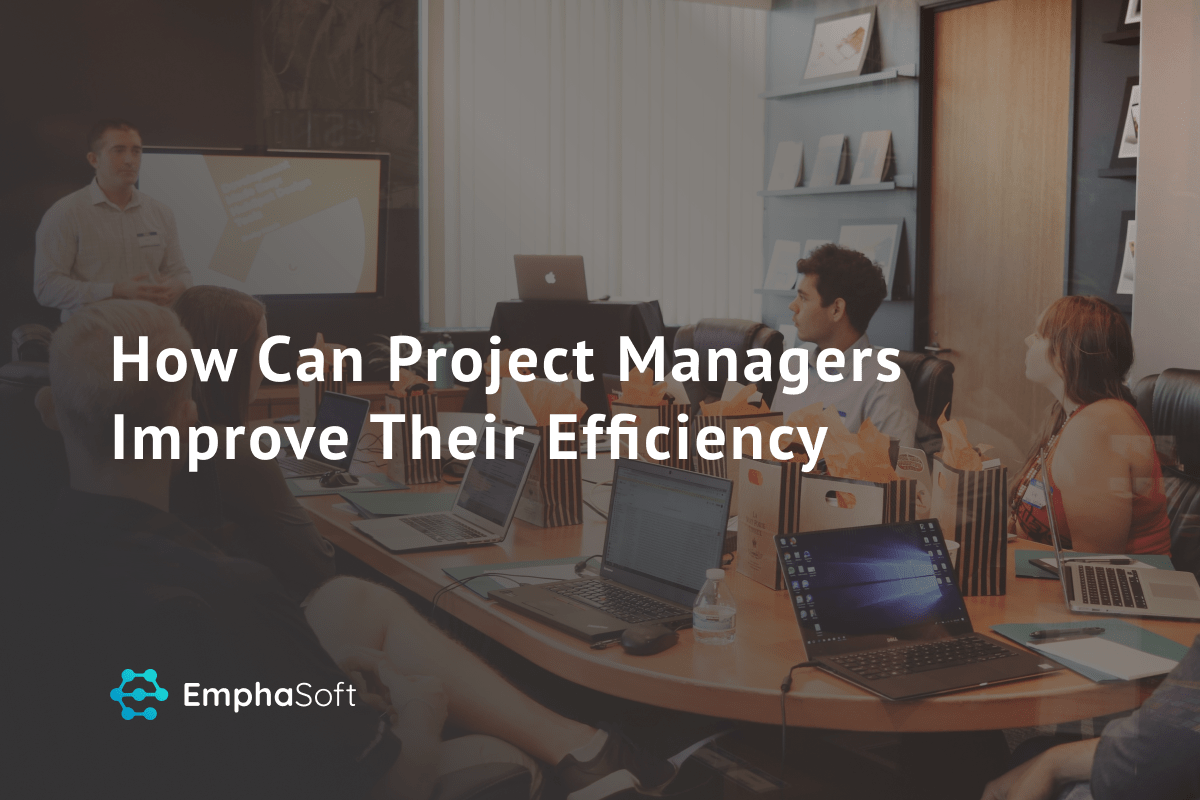6 Incredible Tips To Improve Efficiency For Project Managers
We are living in a fast-paced world where deadlines become shorter, demands grow every minute, and professionals are on a constant hunt for new and effective means of productivity.
Today we will debunk the myth that reaching new levels of project management efficiency requires immense effort and secret knowledge. More often than not, it’s the little changes that do the trick.
And hopefully, a few of our tips will inspire you and change your professional career as a project manager!
What is effective project management?
Before jumping to the tips, let’s first define what constitutes effective and efficient project management.
The main goal of any project manager (PM) lies somewhere between the lines of:
- Delivering the highest quality product or service possible.
- Delivering the project within the shortest possible timeframe.
- Making sure the project outcome (over)exceeds shareholders’ expectations.
- Keeping the team motivated and migration burnout.
So, essentially managing projects effectively equals reaching the best results in the shortest time sustainably.
Steps to Improve project management effectiveness
Improving effectiveness in project management sounds like an easy task. Yet as we all know, the trickiest, most difficult things in life often seem easy and accessible.
However, if you incorporate the tips below into your daily project management tasks, you will be able to reach new heights.
Tip 1: Build effective communication with stakeholders
Project management effectiveness depends largely on how well everyone gets along. And the best way to get along is to communicate regularly and openly.
Project managers are often caught between multiple parties each advocating and lobbying for their own interests. It happens with any project management framework you work under – Lean, Scrum, Waterfall, you name it. And if some, or even worse all, of the stakeholders feel their interests are not considered thoughtfully enough, they will create obstacles and might even sabotage the project. Is this professional? No. Does often happen? Yes, it does.
So, to reduce the chance of conflicts, the project manager should:
1. Find the time to listen to and speak with each stakeholder group.
2. Think ahead and address potential issues before they occur.
3. Be open about plans and goals. Talk through the methods of achieving results and why certain decisions are made.
4. Schedule regular check-ins with the team and shareholders and other vested parties.
5. If someone has a concern or complaint, never write it off. Listen to all sides, make a plan, follow through with it, and report back to the individuals who raised the concern.
6. Provide regular updates to stakeholders to keep them in the loop.
7. Be open to ideas, suggestions, feedback, and criticism. You are surrounded by professionals who want the best for the project, so their ideas are worth listening to.
Tip 2: Stay focused on the main goal
Now that we’ve established healthy and effective communication with everyone, we can focus on the most important thing: the main goal of the project.
You will be surprised how many projects derail from the original plan because:
- Shareholders have new ideas that are added to the project plan randomly.
- A lack of monitoring and control leads to milestones not being reached.
- Requirements were vaguely described from the beginning, making it difficult to understand the end goal.
So, to avoid project failure, practice effective project planning, which includes:
- Setting clear, measurable goals. While “create new productivity software that will blow everyone’s mind” may be an inspirational goal, it’s not realistic or achievable because you can’t measure it.
- Making sure there are tools and practices to track progress. Consider things like project management software, daily team check-in such as Scrums, clear KPIs, and milestones with deadlines.
Project planning supports main goals both directly and indirectly with a side effect of leading to higher quality results.

Personal goals
In terms of personal goals, make sure you find the time every day to work on what’s personally important for you as a project manager.
Make it a priority to work on self-improvement every day.
Many PMs find that creating a routine helps them with that. Try setting aside 30 minutes per day to work on non-project-related tasks. If you can, block the time slot in your calendar and don’t let anyone schedule work or meetings on top of it. Book yourself a meeting room so no one can find you.
Even if you don’t think you need it right now, once you start having this free time, ideas will come. Whether it’s reading the leadership book you’ve kept hearing about, learning how to code, re-organizing your schedule, or even just sitting in silence and being bored – you will come out of this as a better project manager.
Tip 3: Automate processes
Automation is one of the leading factors influencing effective project management.
An efficient project manager appreciates automation over manual labor and is not afraid to run regular reviews of the business processes and upgrade them.
So, have a look at your current project management framework and:
- Remove any redundant activities (such as double-reporting the same data to different managers in different formats).
- Automate all reporting (and upgrade it at the same time: run reports more often and have them include more details).
- Ask around: see what tools and solutions your team knows that can automate their daily tasks.
Remember that automation releases your team from boring and repetitive jobs, cuts down the time a task takes to complete, and minimizes the chances of errors.
Tip 4: Make project documentation easily accessible
Some processes you just can’t automate. But you can document them well for future reference.
Clear, up-to-date, and accessible documentation leads to effective and efficient project management. The project team that has access to a useful knowledge base can verify things without distracting their colleagues, and avoid time waste when they spend hours waiting to hear back from others.
Even though creating and maintaining documentation is not the most fun process, it is a great investment in project management effectiveness.
Tip 5: Manage project risks
Every project manager understands that risk management is a vital part of the process. However, not everyone acts on it despite knowing that managing risks effectively is the best thing you can do for a project’s productivity.
Here are the main steps:
1. Run a risk analysis before the project starts. Identify as many risks as possible and estimate their probability.
2. Create a plan for each risk type. Mitigate as many risks as you can, have an action plan for the rest.
3. Keep an eye on all predefined and potential risks throughout the project.
4. Deal with any new risks immediately to minimize the damage they can cause.
Tip 6: Pick the project team wisely
The skills and knowledge that team members possess are the keys to effective project management just like the PM’s personal habits and productivity tricks. Finding the right candidates from the start enriches the teams’ skillset, adds creativity, and speeds up the process.
Look for professionals who will fit into the team on an emotional level. Sometimes it’s worth hiring someone with a weaker hard skills portfolio but with a better personality fit. Those things make a huge difference to a project's productivity and effectiveness.
Emphasoft is a high-quality custom development company with excellent project management skills. Our team of professionals can start implementing your idea within a couple of days and deliver the solution within scope, timeframes, and budget.

If you are looking to improve your project execution efficiency, then the Emphasoft team is what you are looking for. We work fast, focus on clients’ needs, care about quality, and believe in continuous improvement that helps us stay on top of the industry news and updates.









 Schedule a Discovery Call
Schedule a Discovery Call Schedule Call
Schedule Call